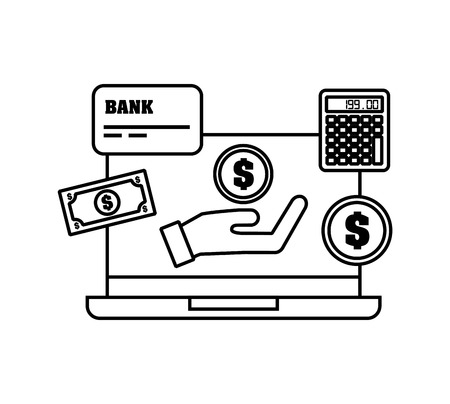Introduction: The Crowdfunding Landscape in the U.S.
Crowdfunding has fundamentally reshaped the entrepreneurial and creative ecosystem in the United States, offering a democratized alternative to traditional funding channels. Over the past decade, platforms like Kickstarter, Indiegogo, and GoFundMe have enabled startups, artists, and social innovators to bypass institutional gatekeepers and directly connect with supporters. This grassroots approach to raising capital has not only accelerated innovation but also empowered underrepresented voices and fostered a culture of participation. As a result, crowdfunding has become an essential driver for launching products, financing independent films, funding medical expenses, and mobilizing communities around social causes. However, despite its transformative potential, the current system faces persistent challenges—ranging from high transaction fees to regulatory hurdles and limited transparency. Against this backdrop of both promise and constraint, new technologies such as blockchain and cryptocurrency are emerging as powerful tools poised to redefine how Americans fund their ideas and ambitions.
2. Enter Blockchain: Decentralizing Fundraising
The introduction of blockchain technology has fundamentally altered the landscape of crowdfunding by shifting the core structure from centralized platforms to decentralized, peer-to-peer models. Traditionally, crowdfunding relied on intermediaries such as Kickstarter or GoFundMe, which not only charged significant fees but also controlled access, curation, and even the disbursement of funds. Blockchain disrupts this legacy framework by enabling direct transactions between project creators and backers using smart contracts and cryptocurrencies. These decentralized protocols remove the need for trusted third parties, thereby lowering costs and increasing transparency.
Key Differences Between Traditional and Blockchain-Based Crowdfunding
| Aspect | Traditional Crowdfunding | Blockchain Crowdfunding |
|---|---|---|
| Intermediary Involvement | Centralized platform manages all transactions and project approvals | P2P transactions via smart contracts; minimal or no central oversight |
| Fees | Typically 5-10% platform fee + payment processor charges | Lower transaction fees; often only network gas fees |
| Transparency | Opaque processes; limited visibility into fund flow or decision-making | Immutable public ledgers show all transactions in real time |
| Accessibility | Geographic and regulatory restrictions may apply | Global participation enabled with internet and crypto wallet access |
| Payout Timing | Payouts subject to platform rules and timelines; potential delays | Immediate fund distribution upon meeting smart contract conditions |
How Peer-to-Peer Transactions Drive Change
By leveraging blockchain’s decentralized ledger, crowdfunding platforms can now facilitate secure, borderless transactions without relying on banks or payment processors. Smart contracts further automate fundraising milestones—ensuring funds are released only when pre-agreed goals are met. This shift not only democratizes access to capital but also instills greater trust among contributors who can independently verify how and when their money moves. As a result, blockchain-powered crowdfunding is rapidly gaining traction across the U.S., attracting both tech-savvy entrepreneurs and everyday Americans seeking more control over their investments and donations.

3. Cryptocurrency: A New Medium for Contributions
Cryptocurrencies are rapidly redefining the crowdfunding experience by offering a frictionless, borderless channel for supporters to contribute to projects they care about. Unlike traditional payment systems—which are often limited by geographic boundaries, currency conversion fees, and lengthy processing times—cryptocurrencies like Bitcoin, Ethereum, and stablecoins empower backers to participate from virtually anywhere in the world with just a digital wallet.
Seamless and Instant Transactions
The decentralized nature of blockchain technology eliminates the need for intermediaries such as banks or payment processors. This not only speeds up the transfer of funds but also reduces administrative bottlenecks that can delay project launches and payouts to creators. For backers, this means their contributions reach project owners faster, while creators gain immediate access to the capital they need to move forward.
Lower Transaction Fees and Increased Transparency
One of the most compelling advantages of using cryptocurrency on crowdfunding platforms is the significantly lower transaction fees compared to credit cards or wire transfers. Traditional financial services often take a substantial cut from each donation, eating into the resources available for projects. By leveraging smart contracts and decentralized ledgers, crypto-based platforms ensure that a larger portion of every contribution directly supports the intended cause. Moreover, blockchain’s transparent ledger system allows all stakeholders to trace transactions in real time, fostering trust and accountability.
Financial Inclusion for Diverse Backers
Perhaps most importantly, cryptocurrencies are democratizing access to crowdfunding by enabling participation from underbanked or unbanked populations worldwide. In many regions where traditional banking infrastructure is weak or inaccessible, individuals equipped with just a smartphone can now support innovative ideas and social causes through blockchain-powered platforms. This broadens the pool of potential contributors and opens up new opportunities for creators to engage with global audiences who were previously excluded from participating in online fundraising campaigns.
A Paradigm Shift in Crowdfunding Participation
Ultimately, by integrating cryptocurrencies into crowdfunding ecosystems, platforms are not just enhancing efficiency—they are laying the groundwork for greater equity and inclusivity in fundraising. The result is a more open, accessible environment where anyone, regardless of location or financial status, can play an active role in bringing new ventures to life.
4. Transparency, Security, and Trust: Benefits for Donors and Projects
One of the most transformative impacts of blockchain technology on crowdfunding platforms is its ability to radically improve transparency, security, and trust among all participants. Traditional crowdfunding models often rely on centralized intermediaries to process payments and track fund distribution, which can lead to opaque operations and vulnerability to fraud. Blockchain’s immutable ledger changes this paradigm by providing a public, tamper-proof record of every transaction.
How Blockchain Enhances Transparency
Every donation or investment made via a blockchain-based platform is recorded on a distributed ledger that is accessible to anyone. This means both donors and project creators can trace the flow of funds in real-time, ensuring that every contribution reaches its intended destination without interference. Such openness not only deters mismanagement but also empowers supporters with greater confidence in how their money is being used.
Security Features: Reducing Fraud and Misuse
The cryptographic nature of blockchain ensures that transactions cannot be altered or deleted once they are confirmed. Smart contracts—self-executing agreements coded directly onto the blockchain—can automate the release of funds only when predefined milestones are met. This automation minimizes the risk of fraud and misuse by making it virtually impossible for either party to manipulate the system after the fact.
Building Trust Between Donors and Project Creators
Trust is fundamental in any fundraising endeavor, especially online where personal interactions are limited. By leveraging transparent records and secure smart contract protocols, blockchain enables a new level of accountability. Supporters can verify project progress against funding releases, while creators benefit from streamlined reporting and demonstrable credibility.
Key Benefits Comparison: Traditional vs. Blockchain Crowdfunding
| Aspect | Traditional Crowdfunding | Blockchain-Based Crowdfunding |
|---|---|---|
| Transparency | Limited; controlled by platform operators | Full; public ledger visible to all participants |
| Security | Centralized systems prone to data breaches/fraud | Decentralized, encrypted, immutable records |
| Trust Mechanisms | Relies on platform reputation/intermediaries | Built-in via open protocols and smart contracts |
| Fraud Prevention | Reactive; dependent on third-party audits | Proactive; automated through code logic and transparency |
This paradigm shift facilitated by blockchain technology not only addresses longstanding concerns about transparency and security but also sets a new standard for trust within the crowdfunding ecosystem. As American backers become increasingly tech-savvy and demanding of accountability, these innovations offer practical solutions that align with cultural expectations around integrity and empowerment.
5. Regulatory Considerations and Legal Frameworks
As blockchain and cryptocurrency continue to reshape the crowdfunding landscape in the U.S., regulatory clarity has become a critical factor for both innovators and investors. The Securities and Exchange Commission (SEC) plays a pivotal role in determining whether digital tokens issued on these platforms qualify as securities, subjecting them to strict registration and disclosure requirements. The SEC’s guidance, particularly its interpretation of the Howey Test, has led many crypto-crowdfunding projects to carefully structure their offerings or seek exemptions such as Regulation D or Regulation Crowdfunding to remain compliant.
In addition to SEC oversight, Know Your Customer (KYC) and Anti-Money Laundering (AML) regulations are central compliance pillars for any U.S.-based crowdfunding platform utilizing crypto assets. Platforms must implement robust identity verification processes and ongoing transaction monitoring to mitigate illicit activities—a requirement that increases operational complexity and costs but is essential for maintaining trust with regulators and users alike.
Despite the promise of decentralized finance, innovative platforms face considerable compliance hurdles. Navigating the patchwork of state-level money transmission laws, responding to evolving federal guidance, and anticipating future legislation all demand significant legal resources. For startups, this can create barriers to entry, while established players must invest heavily in legal infrastructure and compliance teams.
Ultimately, regulatory frameworks are shaping how blockchain-enabled crowdfunding evolves in the U.S. By adhering to clear rules around investor protection, financial transparency, and anti-fraud measures, platforms can foster sustainable growth while safeguarding participants. However, ongoing dialogue between industry stakeholders and regulators will be crucial to strike a balance between innovation and consumer protection as this ecosystem matures.
6. Challenges and Opportunities Ahead
The integration of blockchain and cryptocurrency into crowdfunding platforms presents both significant challenges and transformative opportunities for the American financial landscape. On the technical front, scalability remains a pressing issue. While blockchain offers transparency and security, processing thousands of microtransactions efficiently is still a hurdle for many networks. Furthermore, ensuring user-friendly interfaces that cater to non-technical backers is crucial for mainstream adoption.
Socially, trust and education are central challenges. Many Americans remain skeptical of cryptocurrency due to high-profile scams and market volatility. For blockchain-enabled crowdfunding to flourish, platforms must invest in public education and transparent communication about both risks and rewards. This means demystifying smart contracts, tokenomics, and decentralized governance for everyday users.
From a policy perspective, regulatory uncertainty looms large. U.S. lawmakers and regulators are still developing frameworks to govern digital assets and decentralized finance (DeFi). The lack of clear guidance can discourage both entrepreneurs and investors from participating in blockchain-based crowdfunding. Initiatives like Know Your Customer (KYC) compliance and Anti-Money Laundering (AML) protocols must be balanced with the privacy and inclusivity that blockchain promises.
Despite these barriers, the potential benefits are profound. Blockchain technology has the capacity to democratize access to capital by lowering barriers for underrepresented founders and enabling micro-investments from a broader pool of backers across the United States. Smart contracts can automate complex funding agreements, reducing legal costs and streamlining project management. Moreover, tokenization allows contributors to gain fractional ownership or utility rights, aligning incentives between creators and supporters in innovative ways.
Looking ahead, the opportunity lies in forging partnerships between technologists, policymakers, and community advocates to build secure, inclusive platforms that reflect American values of innovation and equal opportunity. As regulatory clarity improves and public understanding grows, blockchain-enabled crowdfunding could become a cornerstone of economic empowerment—unlocking new sources of funding for small businesses, social enterprises, and creative projects nationwide.


